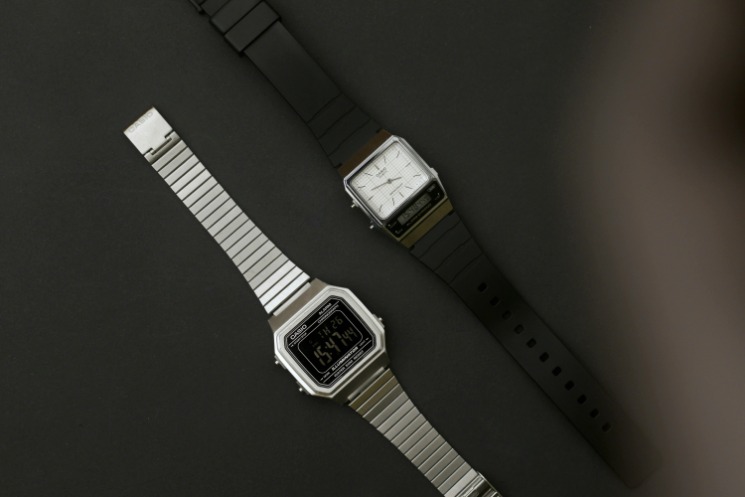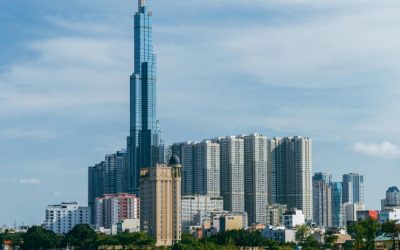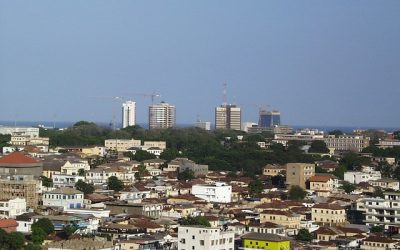Understanding Ghana’s Climate
Understanding Ghana’s climate is essential for planning the best time to visit this vibrant West African country. Ghana experiences a tropical climate with distinct wet and dry seasons, influencing travel conditions and outdoor activities. By recognizing the patterns of rainfall and sunshine throughout the year, travelers can choose the optimal time to explore Ghana’s rich culture, wildlife, and scenic landscapes.
Overview of Climate Zones

Understanding Ghana’s climate is essential for determining the best time to visit the country. Ghana features diverse climate zones that influence weather patterns and travel conditions throughout the year.
The country’s climate can be broadly divided into three main zones: the coastal zone, the forest zone, and the northern savannah zone. The coastal zone experiences a hot, humid tropical climate with a rainy season from March to November, making it lush and green. The forest zone further inland has a similar tropical climate with heavy rainfall, creating dense forests and rich biodiversity. The northern savannah zone has a semi-arid climate with a distinct dry season from November to March and a short rainy season from June to September.
To enjoy favorable weather, the best time to visit Ghana is during the dry season, from December to March. During this period, the weather is generally sunny, dry, and less humid, ideal for exploring outdoor attractions, beaches, and cultural sites. The rainy season, particularly from April to October, is characterized by heavy rains, which might hinder travel plans but also offers a different, lush perspective of the country’s landscapes.
Dry Season
The best time to visit Ghana is during its dry season, which typically occurs from November to March. During this period, the weather is characterized by less rainfall, lower humidity, and plenty of sunshine, making it ideal for travel and outdoor activities. Understanding Ghana’s climate, especially the dry season, helps travelers plan their trips to enjoy its vibrant culture, beautiful landscapes, and outdoor attractions without the inconvenience of heavy rain. The dry season also offers better opportunities for wildlife viewing, visits to beaches, and cultural festivals that thrive in sunny weather.
Rainy Season
The best time to visit Ghana largely depends on understanding its climate and rainy season. Ghana has a tropical climate with distinct wet and dry seasons, which influences the ideal travel periods. The dry season, from November to March, is considered the best time for travelers as the weather is generally sunny, warm, and less humid, making it perfect for outdoor activities and exploring attractions. The rainy season occurs from April to October, with peak rainfall usually between May and June. During this period, heavy rains can disrupt travel plans and outdoor excursions. However, visiting during the shoulder months of late November or early December can offer a pleasant mix of good weather and fewer crowds. Overall, planning your trip outside the peak rainy months will ensure a more enjoyable experience of Ghana’s vibrant culture and natural beauty.
Harmattan Season
The best time to visit Ghana is during the dry season, which typically spans from November to March. During this period, the weather is generally warm and sunny, making it ideal for sightseeing and outdoor activities. A significant feature of this season is the Harmattan, a dry and dusty trade wind that blows from the Sahara Desert across West Africa, including Ghana. The Harmattan usually occurs between December and February and brings cooler temperatures, reduced humidity, and a dusty atmosphere. This season can affect visibility and cause discomfort such as dry skin and respiratory issues, but it also creates a unique cultural environment marked by clear skies and vibrant festivals. Planning a trip during the Harmattan means preparing for these weather conditions while enjoying Ghana’s vibrant culture and natural beauty under the generally pleasant dry season clouded with the atmospheric effects of the Harmattan.
Best Months to Visit Ghana
Ghana is a vibrant destination that offers rich cultural experiences, stunning landscapes, and warm hospitality year-round. However, choosing the best months to visit can enhance your trip, allowing you to enjoy its attractions at their best. Understanding Ghana’s climate and seasonal patterns can help travelers plan an unforgettable journey during the most favorable times.
Peak Dry Season (December to March)
The best time to go to Ghana is during its peak dry season from December to March. During these months, the weather is generally sunny, warm, and less humid, making it ideal for exploring the country’s vibrant culture, historical sites, and beautiful landscapes. This period also offers excellent conditions for outdoor activities such as wildlife safaris, beach visits, and festivals. Visiting Ghana during the dry season ensures a more comfortable and enjoyable experience with reduced rainfall and lush, accessible scenery.
Post-Rainy Season (April to June)
The best months to visit Ghana after the rainy season are from April to June. During this period, the weather begins to clear up, and the landscape is lush and vibrant, making it an ideal time for travelers to explore the country’s rich culture and natural beauty.
- Fewer crowds compared to peak tourist seasons, allowing for more authentic experiences.
- Lush green scenery perfect for outdoor activities and sightseeing.
- Lower travel costs and accommodation rates.
- Excellent conditions for visiting national parks and engaging in eco-tourism.
- Welcoming weather that’s neither too hot nor too rainy.
Harmattan Period (December to February)
The best months to visit Ghana are during the Harmattan period, which occurs from December to February. During this time, the weather is characterized by dry and cool conditions, providing a pleasant climate for travelers. Although the Harmattan brings some dust and haze, it also offers clear skies and lower humidity, making it ideal for sightseeing, outdoor activities, and exploring cultural festivals. Visiting Ghana during these months allows travelers to enjoy comfortable weather while experiencing the country’s vibrant traditions and natural beauty.
Activities and Events by Season
Ghana offers a vibrant array of activities and events throughout the year, making each season a unique opportunity to explore its rich culture and natural beauty. Understanding the best time to visit Ghana can enhance your experience, whether you’re interested in lively festivals, outdoor adventures, or cultural celebrations. By exploring activities by season, travelers can plan their trips to coincide with the most exciting and suitable times to enjoy all that Ghana has to offer.
Festivals and Cultural Events
The best time to visit Ghana depends on the activities and events you wish to experience during your trip. Ghana hosts a variety of seasonal activities, festivals, and cultural events throughout the year, making each season unique for travelers. In the dry season, from November to March, visitors can enjoy outdoor adventures, wildlife safaris, and beach activities with less rainfall. This period is ideal for exploring national parks and coastal regions.
During the rainy season, from April to October, the landscape becomes lush and vibrant, perfect for cultural festivals and local celebrations. Notable festivals such as Homowo in August, which celebrates the harvest season among the Ga people, and Panafest in July and August, a festival of unity and cultural pride, are highlights during this time. Attending these events offers an authentic insight into Ghanaian traditions and customs.
The festive seasons also include Christmas and New Year celebrations in December, when towns and cities are lively with cultural performances, street festivals, and traditional ceremonies. Planning your visit around these seasonal events allows you to immerse yourself in Ghanaian culture and enjoy a vibrant, memorable experience.
Wildlife and Nature Tours
The best time to visit Ghana depends on the activities and experiences you seek, particularly wildlife and nature tours. Ghana offers a variety of seasonal activities that highlight its rich biodiversity and vibrant landscapes during specific times of the year.
- Activities and Events by Season: Ghana’s dry season, from November to March, is ideal for outdoor adventures, festivals, and cultural events. During this time, the weather is hot and sunny, making it perfect for exploring national parks and engaging in safari tours. The rainy season, from April to October, brings lush greenery and is suitable for birdwatching, botanical exploration, and eco-tourism, though some areas may be less accessible due to rain.
- Wildlife and Nature Tours: The dry season is the best time for wildlife viewing, as animals gather around water sources and are easier to spot. National parks like Mole and Kakum offer thrilling safaris, where visitors can observe elephants, lions, buffalo, and antelopes in their natural habitat. Additionally, birdwatchers will enjoy the dry season when migratory birds are abundant.
Beach and Water Activities
The best time to visit Ghana offers a variety of activities and events suited to each season, as well as ideal opportunities for beach and water activities.
- Activities and Events by Season:
- Dry season (November to March): Perfect for outdoor festivals like Panafest and Homowo, cultural tours, and safaris. The weather is sunny and ideal for exploring cities and national parks.
- Rainy season (April to October): Best for lush scenery, internal travel, and enjoying local markets. Some events like the Chale Wote Street Art Festival also occur during this period.
- Beach and Water Activities:
- Dry season: Excellent for beach relaxation, swimming, surfing, and boat trips along the coast. The Atlantic beaches of Labadi, Kokrobite, and Busua are popular during this time.
- Rainy season: While less ideal for water activities due to heavy rains, some enjoy water sports during brief sunny intervals.
Travel Considerations
Planning a trip to Ghana requires careful consideration of travel factors to ensure a smooth and enjoyable experience. Understanding the best time to visit, climate conditions, and local customs can greatly enhance your journey. By taking these travel considerations into account, you can make informed decisions and fully enjoy the rich culture and natural beauty Ghana has to offer.
Weather Conditions and Planning
When planning a trip to Ghana, understanding travel considerations and weather conditions is essential to ensure a smooth and enjoyable experience. The best time to go to Ghana is during the dry season, which typically spans from November to March, when there is less rainfall and more sunny days. During this period, travel is easier, and outdoor activities such as visiting national parks and beaches are more accessible. Planning ahead is crucial, especially for accommodations and tours, as this is peak tourist season. It’s also important to consider the Harmattan season from December to February, when dry and dusty winds from the Sahara can affect visibility and respiratory comfort. Being aware of these weather patterns helps travelers pack appropriately and plan their activities accordingly, making their visit to Ghana more comfortable and memorable.
Pricing and Accommodation Rates
The best time to visit Ghana depends on your preferences and travel plans, but generally, the dry season from November to March offers ideal weather for sightseeing and outdoor activities. During this period, rainfall is minimal, and temperatures are warm but not overly hot, making it comfortable for exploring the country’s cultural sites and natural attractions.
Travel considerations should include checking visa requirements, vaccination advisories, and safety tips. It is also essential to plan ahead for transportation and local guides to maximize your experience and ensure safety during your trip.
Pricing and accommodation rates in Ghana vary throughout the year, with peak season rates tending to be higher during the dry season when tourism is at its peak. Budget travelers can find more affordable options during the rainy season from April to October, although some outdoor activities may be limited by weather conditions. It is advisable to book accommodations early during the high season to secure better rates and availability.
Health and Safety Tips
The best time to visit Ghana depends on the weather and local events; it is essential to consider travel considerations and health tips to ensure a safe and enjoyable trip. Traveling during the dry season, from November to March, offers better weather and is ideal for sightseeing and outdoor activities. However, the rainy season from April to October can bring heavy rains, which may affect travel plans and accessibility to some areas.
- Stay hydrated and protect yourself from the sun by wearing hats, sunglasses, and sunscreen, especially during hot daytime hours.
- Carry insect repellent to guard against mosquitoes, which are prevalent in Ghana and can carry illnesses like malaria.
- Ensure your vaccinations are up-to-date, including yellow fever, typhoid, and hepatitis A and B, before traveling.
- Drink bottled or purified water to prevent waterborne diseases and avoid consuming raw or undercooked foods from untrusted sources.
- Be cautious with street food; choose well-established vendors and freshly cooked meals to reduce health risks.
By considering the seasonal climate and adhering to health and safety tips, travelers can enjoy the diverse culture, history, and natural beauty that Ghana has to offer at the optimal time of year.





0 Comments